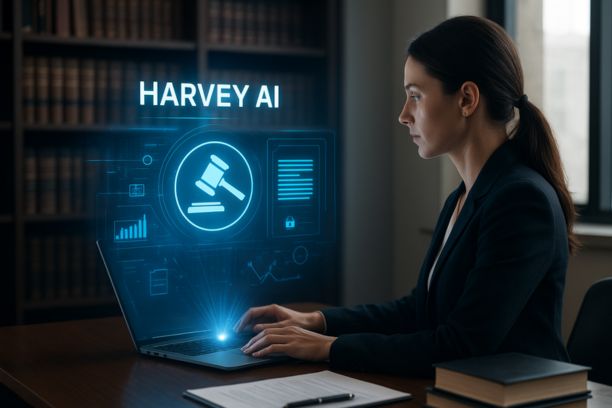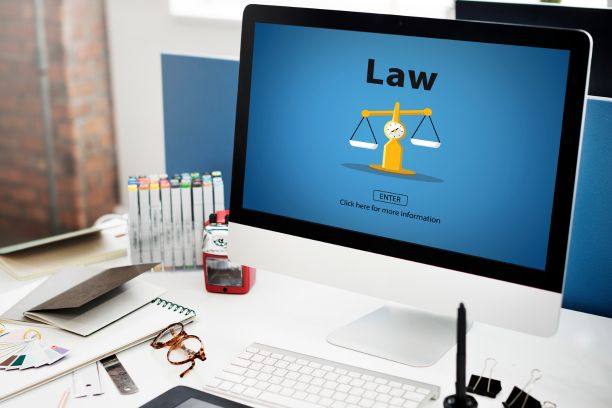
The Use of AI for Lawyers: How Artificial Intelligence Is Changing Legal Practice
Artificial Intelligence (AI) has reshaped industries across the world—from healthcare to finance—and the legal profession is no exception. Today, lawyers are exploring AI tools to automate research, draft legal briefs, and even predict case outcomes. But while AI’s potential in law is undeniable, it also raises complex questions about ethics, accuracy, and accountability.
So, is AI truly a game changer for lawyers, or does it carry hidden risks? Let’s explore the use of AI in law, its advantages, challenges, and how attorneys can responsibly integrate it into their practice.
Understanding AI in the Legal Field
AI in law refers to the use of advanced algorithms and machine learning models to perform tasks traditionally done by humans. These tasks include legal research, document review, contract analysis, case prediction, and client communication.
Modern AI tools such as Harvey AI, Casetext CoCounsel, Lexis+ AI, and ChatGPT have made it possible to process large volumes of legal information in seconds. For law firms that handle heavy caseloads, AI offers speed, consistency, and data-driven insights—qualities that were once beyond reach.
Yet, while AI can assist lawyers, it cannot replace their expertise or judgment. Legal interpretation involves human reasoning, moral understanding, and contextual thinking—something even the most advanced AI cannot replicate.
The Benefits of Using AI for Lawyers
AI is transforming the way law firms operate. When used correctly, it enhances productivity, reduces costs, and allows lawyers to focus on strategy and advocacy rather than administrative tasks.
1. Faster Legal Research
AI-driven platforms can scan through thousands of cases, statutes, and legal documents in moments, identifying relevant precedents and summarizing findings. This drastically reduces research time and ensures lawyers never miss critical details.
2. Efficient Document Review
From contracts to due diligence, AI tools can analyze lengthy documents, highlight key clauses, and flag inconsistencies. This helps lawyers streamline review processes and detect potential risks faster.
3. Drafting Legal Documents
AI-powered writing assistants can generate first drafts of briefs, motions, and contracts. While lawyers must always refine and verify them, these drafts save hours of manual effort.
4. Predictive Analytics
Some AI tools use historical case data to estimate potential outcomes. This allows lawyers to better advise clients, prepare for litigation, and assess the likelihood of success in court.
5. Client Communication and Management
Chatbots and AI-based scheduling tools improve client interaction and accessibility. They help law firms respond quickly to queries, manage appointments, and streamline intake processes.
6. Cost Reduction
By automating repetitive tasks, AI minimizes billable hours spent on low-value work. This not only increases firm profitability but also makes legal services more affordable for clients.
The Risks and Ethical Challenges of AI in Law
As powerful as AI is, it’s not without flaws. Recent events have shown how misuse or overreliance on AI can lead to serious professional consequences.
In a widely publicized case, two New York lawyers were sanctioned after submitting a legal brief that contained fake case citations generated by ChatGPT. The AI had fabricated case law—a phenomenon known as “AI hallucination.” When questioned, the lawyers couldn’t produce real documents, leading to a $5,000 fine and reputational damage.
This incident revealed a crucial truth: AI tools can sound confident but still be completely wrong.
Here are some key risks every lawyer should consider:
1. Accuracy Issues
AI models don’t “understand” law—they predict text patterns. Without human verification, this can lead to incorrect citations or misleading arguments.
2. Ethical and Professional Responsibility
Regardless of AI involvement, lawyers are fully accountable for what they file in court. Presenting AI-generated errors can be considered misconduct.
3. Data Confidentiality and Privacy
Uploading client information into AI systems can expose sensitive data to external servers. If mishandled, it could violate attorney–client privilege.
4. Bias and Fairness
AI tools are trained on existing data. If that data contains bias, the AI can unintentionally perpetuate discriminatory or unfair conclusions.
5. Over-Reliance on Technology
When lawyers depend too much on AI, they risk weakening their analytical and critical thinking skills—both essential for strong legal advocacy.
Legal Reactions and New Courtroom Rules
In response to rising AI misuse, courts and bar associations have started implementing new rules.
In Texas, District Judge Brantley Starr issued a directive known as the Mandatory Certification Regarding Generative Artificial Intelligence. It requires lawyers to confirm that any AI-generated content used in filings has been manually verified for accuracy.
This policy inspired similar measures across the United States, where law firms are now required to disclose AI usage in legal documents. The message is clear: AI is welcome—but accountability remains with the lawyer.
How Lawyers Can Use AI Responsibly
AI can be an incredible ally for legal professionals—if used wisely. Here are key principles for responsible use:
1. Verify Everything
Always fact-check AI-generated data, citations, and case references. Never submit anything to court without independent validation.
2. Maintain Client Confidentiality
Avoid inputting confidential client data into public AI systems. If necessary, use in-house or enterprise-grade tools that comply with privacy standards.
3. Understand the Tool’s Limitations
Most AI tools (like ChatGPT) have knowledge cutoffs and may not access the latest legal updates. Always check whether information reflects current law.
4. Use AI as an Assistant, Not a Replacement
Let AI handle the groundwork—drafting, summarizing, or idea generation—but let your human expertise refine the outcome.
5. Stay Informed About AI Ethics and Law
Follow guidelines from bar associations and courts regarding AI usage. Continuous learning is vital as regulations evolve.
6. Train Staff and Set Internal Policies
Law firms should create clear internal policies on when and how AI can be used—especially in client work, document review, and legal filings.
The Future of AI in Legal Practice
AI will continue to evolve, offering even more powerful tools for the legal industry. Predictive litigation analytics, automated compliance monitoring, and AI-assisted negotiation software are just the beginning.
In the coming years, we might see AI drafting real-time arguments, analyzing jury sentiment, or helping judges write rulings. But no matter how advanced it becomes, one thing remains constant—the irreplaceable value of human judgment, ethics, and empathy.
The future of law lies not in replacing lawyers but in empowering them. Those who learn to blend AI efficiency with human intelligence will shape the next era of legal practice.
The Bottom Line
AI offers lawyers an opportunity to transform their work—streamlining research, enhancing accuracy, and saving time. However, it also demands responsibility, skepticism, and awareness.
Artificial Intelligence can assist lawyers, but it cannot think like them. It cannot grasp moral nuance, interpret intent, or understand the emotional and ethical weight of justice.
As AI continues to grow in influence, lawyers who embrace it thoughtfully—balancing innovation with integrity—will thrive in this new era of law.
Frequently Asked Questions
1. Can AI replace human lawyers?
No. AI can automate routine tasks like research and drafting, but it lacks human judgment, empathy, and ethical reasoning—essential aspects of legal practice.
2. What are the best AI tools for lawyers in 2025?
Popular tools include Harvey AI, Casetext CoCounsel, Lexis+ AI, Jasper, and Luminance. Each serves different purposes like research, document review, or contract analysis.
3. Are there risks of plagiarism with AI-generated legal content?
Yes. Some AI tools generate text that closely mirrors public sources. Lawyers should always paraphrase, cite accurately, and review outputs for originality.
4. How can lawyers ensure data security when using AI?
Use enterprise-grade AI systems with encryption and strict privacy controls. Avoid sharing client-sensitive data with public or free AI platforms.
5. How do courts view AI-generated legal documents?
Courts allow AI assistance as long as lawyers take full responsibility for verifying content accuracy and ethical compliance.



